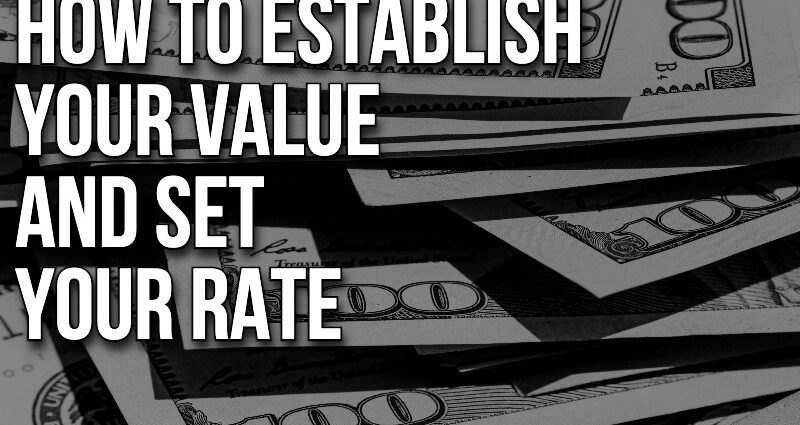Alright everybody, no more messing around. We’re in it, to win it. WE AIN’T HERE FOR THE FUN OF IT. Well… Some of us are but we can’t forget the number one rule… It’s the entertainment BUSINESS. Now that the world is opened back up and all of the crew agencies and tour managers are scouring the industry to find the best candidates for their upcoming dates, for the very first time, (at least since I’ve been in the game) road crews have the upper hand. This is How to Establish Your Value And Set Your Rate.
This is a wild time. Techs who used to work intermittently are finding themselves double booked. Upcoming touring pros who were on the verge of making this a career are now quitting their day jobs and techs who were busy before, are now entirely unavailable, leaving the admin folks who need to find the crew in a bit of a jamb. So what do you do when the phone’s ringing off the hook (sorry, I’m an old guy… “emails are blowing up”) with offers?
Here are the categories to help guide you along the way.
- Self-Assess and Sell Yourself
- Know What Rate You’re Willing to Accept
- Know The Gig That You’re Negotiating
- Be Willing to Budge
- Be Ok With Saying No
Before we even get started and break this up into our tested and true categories, something needs to be addressed. It’s very important to differentiate between your self-assessed value, and how the touring world sees you. True honesty with yourself is the very first step.
Self-Assess and Sell Yourself
List your accomplishments on a piece of paper. Be proud of yourself for everything you have done. If it’s lots, amazing. Good for you. Get straight to the point when selling yourself. If the list is smaller, that’s fine too. You might be exactly what the gig needs.
Ask yourself why you’re the best candidate, and if you were hiring for this position, how much money do you think someone deserves for this position? Whatever you do… Don’t embellish. Trim the fat and deliver the exact information.
As I mentioned in “Does your resumé matter“, I check on references that people don’t list. After looking at your resumé, there’s a really good chance that I know someone that you’ve worked with. A couple of years ago, I was going through the motions trying to find some crew for a tour. This guy had a pretty impressive client list. I knew some people that were also regulars on those crews. Turned out, homie did 1 gig and got fired. Don’t be a bonehead and put that on your resume.
What I’m trying to say is… Don’t be the Kanye West of touring and sell yourself as Jesus 2.0 if you’ve only got a couple of small club tours under your belt. Honesty is the key.
Know What Rate You’re Willing To Accept
This should be number 1. You need to be painfully aware of what rate you’re willing to accept, and where exactly the line is drawn.
Not all gigs are going to have the budget you want. That’s ok. It’s up to you to take them or pass on them. If you take them, even if they’re lower-paying than you’re used to, you still gotta go as hard as you would on your highest-paying gig.
That being said, have some self-respect. The rate you’d like to accept and what you’re willing to accept should be relatively close. Don’t tell me your rate is $4k/week then when I tell you that I only have $2k/week, you immediately say, that’ll work.
Know The Gig That You’re Negotiating
You need to be aware of the level the artist is at.
Just because someone is looking at you for one gig, doesn’t mean that you’re not the right fit for another artist that they take care of. Don’t blow it because you want to tell this baby band that they can’t afford you.
Get Rate Comparables
Get Comparables. I.e. Ask someone else what they think your rate should be. If you’re doing a lot of back and forth, Ask the people hiring what the last tech did it for, (then add $25-$50/day cuz that’s probably the real answer). Then again, reference what you’re willing to accept.
As someone who has hired hundreds of people over the years, there is nothing more annoying than this exact conversation.
TM: What’s your rate?
Tech: It’s always different, what’s your budget?
And the cycle lasts forever since neither party is willing to say in fear of giving up money. Next time someone says that to me, I’m simply gonna reply “Budget is $0, what’s the lowest you’re willing to work for?” Fuck outta here with that bullshit.
Be Willing To Budge
This is the art of negotiation. The NYPD should send their hostage negotiators to find crew for a busy summer as their training. I mean… not really, but you get the point.
Sometimes when I’m looking for crew, I need them to budge on either rate or responsibility. It’s possible that the tour has the money that you need to move forward, but it’s allocated to another line item in the budget. If you’re willing to do more work for the money you want to see, then ask how you can provide more value within other aspects of the tour.
Be Ok With Saying No
Sometimes it’s not going to work out. You might be the best fit for a gig, but that might be because you’re overqualified. Maybe the gig is worth investing in, but you’re in a position where you can’t make it work financially. That’s ok as well.
This is an acceptable answer. Respectfully say, “I’d love to, but I think <this person> might be a better fit for your budget.”
Just don’t shoot off your mouth after the fact about how they begged you for the gig but they couldn’t afford you.
Side Story
My accountant is a beauty. He’s got a heart of gold (and literal bricks of gold under his bed), but knows absolutely nothing about the touring industry. In a not-so-recent visit to his office, we were talking about investing and all sorts of wizardry he cooks up in an unsuccessful attempt at trying to make me a millionaire. Although, he did bring up some great points.
- Chances are people are willing to pay you 25% more than the rate you’re asking for.
- If you want these people to pay you more money, provide so much value that it’s a no-brainer when you ask for more.
- Side Hustle. Find other ways to make money on or off the road.
Something to keep in the back of your mind.
Summary
The moral of the story is that you can establish your value at whatever you want. That doesn’t mean that anyone is going to pay it.
If you’re unsure about your value, I’m here. [email protected]


Another great read. After reading I think my value just went up 30%.